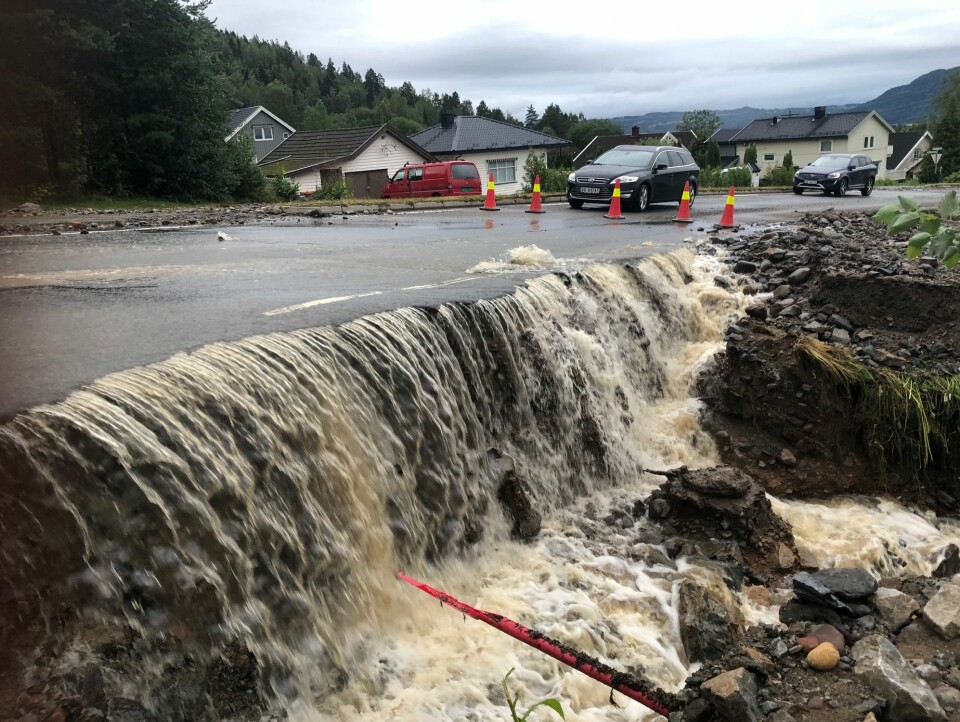
Very little money is actually spent on climate research
Researchers have looked at where USD 1.3 trillion in research funding is spent across the globe. Less than 5 per cent of this money has gone to climate research. Studies that examine how society can cope with the climate of the future are given a very small share of this pot.
In a recent study, researchers at the Norwegian Institute of International Affairs (NUPI) and the University of Sussex reviewed how much of US 1.3 trillion (NOK 11.4 trillion) in research funding is dedicated to climate research.
The study looked at 332 sources of funding distributed across 37 countries — including Norway — and totalled money that was or will be allocated between 1950 and 2021.
Climate change research received just under 4.6 per cent of the research funding allocated between 1990 and 2018, researchers found.
And while research in the natural sciences and technology received about USD 40 billion, social science and humanities research received just USD 4.6 billion during the same period.
An analysis of 1500 grants for social science research aimed at curbing climate change showed that this type of research is being awarded USD 393 million.
This corresponds to 5.21 per cent of all climate research funding and 0.12 per cent of all research funding, the researchers write.
“The one-sided emphasis on the natural sciences leaves one wondering whether funding for climate research is managed by climate sceptics. It’s as if they don’t quite believe in climate change, so they keep trying to find out how it really works, rather than trying to work out how to stop it,” researcher Indra Øverland said in a NUPI press release.
Social science should play an important role
Øverland conducted the study with Benjamin K. Sovacool at the University of Sussex.
“Most people probably think that because climate change is so severe, research on this would be hugely prioritized. But the opposite is true. And, oddly, the smallest part of the funding goes into solving the most pressing issues,” Sovacool said in the same press release.
The researchers write in their study that social science research plays an important role in understanding how climate change can be slowed.
“One of the most urgent unsolved puzzles is how to get people to act on what they know, that is to say, how to alter society to curb climate change,” they write.
They also observed that it appears that climate research funding is based on the idea that if researchers can demonstrate what causes climate change, what the effects are and how technology can provide solutions, then politicians, bureaucrats and people will automatically change their behaviour to solve the problems caused by climate change.
But Overland and Sovacool point out that in order to change habits, there will have to be changes in attitudes, norms, incentives, ethics and politics on a personal, societal and national level.
“Therefore, some of the key issues in the field of climate science belong to the social sciences field. Nevertheless, as we see in the study, it is precisely this field that receives the least funding,” the researchers write, while acknowledginf that they themselves are social scientists and have an interest in seeing more funding allocated to the field.
Changes that can help
They call for a more balanced distribution of climate research funding, but point out that social research also has some weaknesses that should be addressed.
The researchers point to earlier findings that several social science studies lack a research design or methods. They also note that other studies are too focused on obscure theoretical debates, or show little understanding of the natural sciences.
At the same time, the researchers call for a more systematic overview of how funds are allocated. Without an overview, some research fields may receive overlapping funding, while others are forgotten, they write.
Funds allocated based on priorities from the ministries
John-Arne Røttingen, director of the Research Council of Norway, says that about NOK 3.3 billion was spent on research on energy, the environment and climate through Research Council funding in 2017.
“The bulk of these funds go to energy-related research, which is important for adapting to a low-emission society of the future. The Research Council distributes the funds based on priorities from the ministries, and thus is not free in deciding how funds should be distributed,” he writes in an email.
The Research Council's targeted investment in climate research, KLIMAFORSK, totalled NOK 158 million in the same year.
“One-third of this investment is aimed at restructuring and adaptation. A large part of this is social science research,” Røttingen writes.
“That said, we see that there is clearly a need to strengthen research on adaptation to the increasing climate change we see on the horizon. Social science climate research will be central in this context. Social science research is also needed to contribute to measures that reduce climate change, both through behavioural change and systemic change,” Røttingen writes.
He adds that the Research Council is now preparing portfolio plans that will look at social challenges in a larger context.
“Society's need to adapt to climate change will be addressed in these plans,” he writes.
Reference:
Øverland, I. and Sovacool, B.K: «The misallocation of climate research funding». Energy Research & Social Science (2020)
———


































